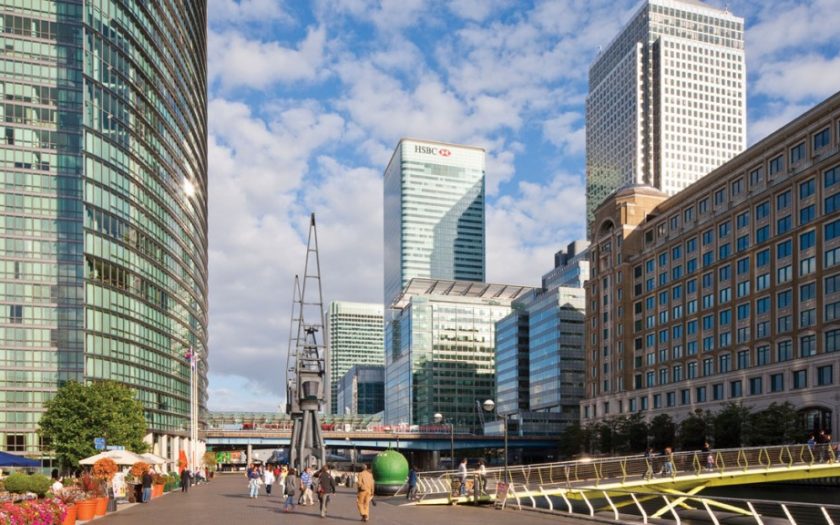
Up until now, the only British asset visibly to have been hit by concerns over Britain potentially voting to leave the European Union later this year was the pound – and even sterling has bounced back to where it started 2016 against the US dollar.
However, now it seems that international firms are refraining from piling into offices and shops in the UK until the vote is over, reports the Royal Institution of Chartered Surveyors (RICS). Indeed, since the referendum was announced last spring, says RICS, there has been a steady easing in demand for commercial property from overseas buyers.
Some 40% of RICS members across the UK said that international retailers reduced their investment into the UK during the first quarter of 2016, in advance of the June referendum. This figure was even higher in the capital, where 80% of members reported that uncertainty around Britain’s future in the EU was putting a stopper on international investment.
Perhaps unsurprisingly, nearly half of RICS members reckon that Brexit would have a negative impact on the commercial property market, compared to 38% who felt the impact would be limited. Just 6% saw Brexit as a positive outcome – and none of those were in London.
The concern isn’t just that new investment in commercial property will dry up. It’s that international investors will pull out – according to the report, many are drawing up contingency plans to allow them to move their headquarters swiftly to elsewhere in Europe.
Paris, Frankfurt and Dublin are thought to be among those at the top of their wish lists. In February, HSBC warned that it would probably move about 1,000 investment bankers to Paris if Britain pulls out of the EU, for example, and in March, the chief executive of AEW Europe, which manages around €18bn in property assets, said his company would probably make any deals signed before June conditional on the UK voting to remain.
In a separate study, credit-ratings agency Standard & Poor’s warned that Brexit could reverse the gains in property values seen in recent years. London would be the hardest hit, reported the Wall Street Journal. Firms may choose to leave the capital, downsize their operations in the city, or invest elsewhere – all of which would weaken demand for office space and bring down prices.
The figures are striking, given that overseas investors currently own a quarter of UK commercial property, about £113bn-worth. However, RICS’ chief economist, Simon Rubinsohn, told The Guardian that investors taking a “wait and see” approach isn’t all bad news.
“As a result of the market dampening, business rents are also rising at much slower rates, which suggests that we might soon be seeing more favourable conditions for entry and business growth.” It’s also not that straightforward to separate out the “Brexit” effect from an old-fashioned overvalued market – commercial property in the UK right now is hardly cheap, and several analysts have expected a “softening” in prices for some time now.
Meanwhile, RICS reckons residential prices could also suffer a Brexit hit, particularly in London and the Southeast – partly because so many expensive houses are owned by foreign investors, and also because highly paid executives might follow their business headquarters to continental Europe, taking some of the heat out of house prices in the short term. Of course, with Barclays bringing the 100% mortgage back to the UK housing market this week, in a sign that banks are relaxing back into the boom mentality, any respite may be short-lived.